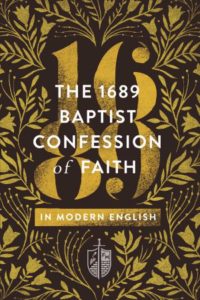 Article by Jake Stone (original source here)
Article by Jake Stone (original source here)
In his instructions to Titus, Paul writes that ministers are to “teach what accords with sound doctrine” (Titus 2:1). The pulpit ministry that upholds and follows biblical exposition heeds these words of Paul. The pastor preaching the Scriptures verse-by-verse by using the historical-grammatical-theological/redemptive hermeneutic feeds his congregation. Theologically-rich, biblically based hymns are also a means by which the congregation is taught sound doctrine.
I would like to recommend a further means why which the preaching of sound doctrine can be faithfully taught in the corporate gathering of the saints each Lord’s Day. The 4 “Cs” are a way in which the congregation celebrates biblical truths, theology, and ecclesiastical bonds with the past. These four “Cs” are: creeds, confessions, catechisms, and covenants. Each of these is rooted in the Scripture: 1. an expression of doctrinal beliefs, 2. a reminder of the importance of church membership, and 3. a guide believers in the instruction of the faith.
Creeds
Perhaps you have heard that Baptists have “No creed but Christ” or “No creed but the Bible.” Some have boldly asserted these phrases to celebrate what they perceive as a Baptist distinctive: anti-creedalism. But Baptists are not anti-creedalists. While it is true that Baptists rejected creeds as a litmus test for citizenship, since Baptists abhor a state church, Baptists never disowned creeds as though they had no importance in the life of the church. Baptists have always held to Christian orthodoxy as expressed in the Apostles’ Creed, Nicene Creed, and the Athanasian Creed. Both Particular and General Baptists affirmed the use of creeds. The Baptist Orthodox Catechism, edited by the Particular Baptist, Hercules Collins, says the Nicene Creed and Athanasian Creed ought to be taught. In The Orthodox Creed, the General Baptists affirm and encourage Baptists to learn and teach the aforementioned creeds. The early Southern Baptist theologian, B.H. Carrol, affirmed the importance of creeds, when he wrote: “The modern cry: ‘Less creed and more liberty,’ is a, degeneration from the vertebrate to the jellyfish, and means less unity and less morality, and it means more heresy.”
Why should Baptist churches use the historic, ecumenical, orthodox creeds in corporate worship? These creeds provide biblically faithful and understandable defenses and explanations of the Trinity, the hypostatic union of Christ, and other central tenets of the Christian faith. Continue reading
